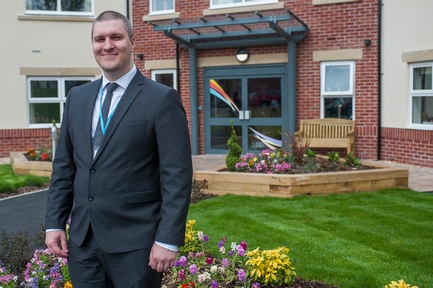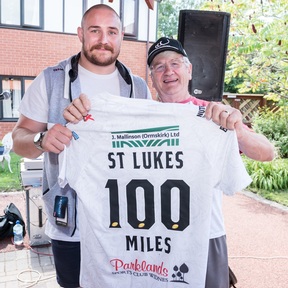Charity wins three National Dementia Care Awards
The national social care charity, , recently collected three prestigious accolades at the National Dementia Care Awards, winning top honours in the 'Best Dementia Care Home', 'Best Dementia Care Manager' and 'Best Relative Contribution' categories.

The awards recognise pioneering work in developing new models of dementia care, and in promoting community and family engagement.
Paula Spence, director of Older People’s Transformation at Community Integrated Care, said: “It was a real honour to have such recognition at the National Dementia Care Awards. Our award winners and nominees all have a genuine commitment to being ambitious, giving back to their communities and making a difference. We are so proud to see them celebrated on this big stage.”
’Genuine commitment’
EachStep Blackburn was named 'Best Dementia Care Home', whilst its manager, Phil Benson, received the 'Manager of the Year' accolade. The care home has received significant national acclaim since its launch in May for its ambitious approach to dementia care, community relations and care home design.
Award judges praised the home, saying: “Their honest, open and fresh look at dementia is inspirational. They have breath-taking engagement and commitment with the local community and the accolades recognise the pioneering work.
“Each person living at EachStep Blackburn is a blank canvas living a great life, achieving a normal standard of living, beyond CQC’s standard of outstanding. Their focus is more about each person than a diagnosis of dementia.”
Pioneering work
Community Integrated Care’s partnership with the Super League rugby league club was also shortlisted in the 'Best Dementia Innovation' category. The charity’s Halton based dementia care homes enjoy weekly visits from community coaches and legendary players from the club. They have also created a highly successful Widnes Vikings-themed dementia café, which uses the power of sport to improve the lives of people affected by the condition.
John Hughes, head of communications and marketing for Community Integrated Care, said: “Community Integrated Care and Widnes Vikings are two leading organisations that were formed in Halton and are at the heart of the local community.
“We are thrilled that Widnes Vikings share our ambitions to deliver a programme that transforms lives. We believe that this is a sector leading partnership, and thank the club for their passion, ambition and commitment.”
Improving lives

Mother and daughter, Elaine Young and Frankie Conroy, were recognised for their support towards EachStep Blackley, a £5m specialist dementia care home that cared for Ms Young’s father for three years. The pair were shortlisted in the 'Best Relative Contribution Award' for their volunteering efforts and for raising £13,000 for the care home.
John Timms, who is a tireless volunteer for Community Integrated Care, also collected the 'Best Relative Contribution Award'. After his wife Marian, who lived at St Luke’s Care Home in Runcorn, passed away in 2015, he dedicated himself to giving back to the home, for what he describes as “their overwhelming kindness and dedicated care.”
In May, at the age of 75, Mr Timms took part in a 100-mile fundraising trek across five canals from Birmingham to Runcorn. He raised £3,000 which has been used to transform the home’s gardens. He also visits the home weekly and has championed dementia care on Radio 4 and ITV Granada Reports.
The judges commended Mr Timms for his ‘enormous contribution’ saying: "Not only has John raised a large amount of money by walking 100 miles, he has also created an inspiring garden and visits the residents for a warming chat every week.”
Community Integrated Care was founded in Widnes in 1988 and is one of Britain’s biggest health and social care charities, supporting over 5,000 people across England and Scotland who have learning disabilities, mental health concerns, autism, and age-related needs, such as dementia.
Latest News
 29-Jul-24
Dementia Bus gives carehome.co.uk staff insight into life with dementia
29-Jul-24
Dementia Bus gives carehome.co.uk staff insight into life with dementia
 01-Mar-24
Find out the top care homes in 2024
01-Mar-24
Find out the top care homes in 2024
 21-Mar-23
UK's top care homes in 2023 revealed
21-Mar-23
UK's top care homes in 2023 revealed
 03-Jan-23
carehome.co.uk launches free care helpline
03-Jan-23
carehome.co.uk launches free care helpline
 13-Dec-22
5 mins with Emily Whitehurst, chief operating officer for Constantia Healthcare
13-Dec-22
5 mins with Emily Whitehurst, chief operating officer for Constantia Healthcare